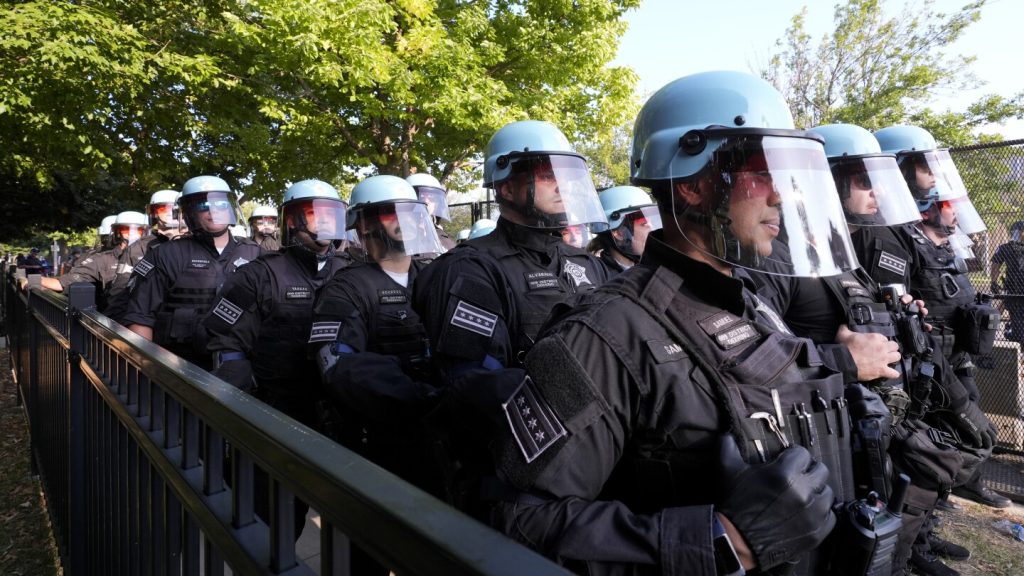Chicago recently hosted the Democratic National Convention, with hopes of hosting peaceful protests that showcased different narratives about the city. Despite not reaching the expected 20,000 participants, organizers were still pleased with the turnout of the largely family-friendly demonstrations. Activists from various causes united on a pro-Palestinian, anti-war message, with the main activist coalition leading the charge. The protests were mostly peaceful, although there were some arrests and incidents outside the Israeli Consulate.
The Chicago Police Department prepared for the protests by deploying hundreds of officers to maintain order and handle any potential unrest. While some praised the police for their handling of the situation, others criticized their tactics and excessive presence. The police were visible at all major protests and denied using tactics that corral demonstrators in a confined area, known as “kettling.” In total, there were 74 arrests during the convention week, but no major injuries were reported among protesters or police.
The protests outside the Israeli Consulate echoed the tensions of the past, with protesters and police facing off in a reminiscent scene of the 1968 clashes. However, city leaders and police officials emphasized that Chicago has evolved since then and highlighted the city’s ability to host large events peacefully. Activists also took credit for the peaceful nature of the protests, citing their own security measures and adherence to city protocols. However, some delegates expressed dissatisfaction at the lack of Palestinian representation inside the convention.
While activists and protesters hoped to make an impact on those inside the convention, some speculated that Vice President Kamala Harris being the new Democratic nominee may have deterred some from attending. Regardless, protesters were committed to showing solidarity and fighting for causes like healthcare and Palestinian rights. The protests aimed to showcase a display of community and support, especially for marginalized communities like Palestinians and Jordanians. In the end, organizers and participants believed that their voices were heard and their presence made a difference in highlighting important issues during the convention.


